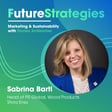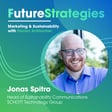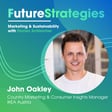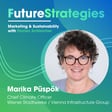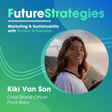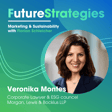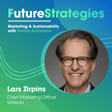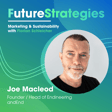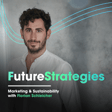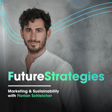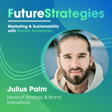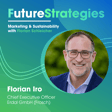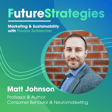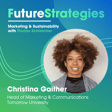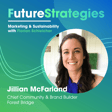
♻️ "Rethinking Marketing" - Alexis Eyre and Paul Randle about Sustainable Marketing
Alexis Eyre and Paul Randle wrote a book together: “Sustainable Marketing” - The industry’s role in a sustainable future.
Both assess on the Sustainable Marketing, Media and Creative course at the Cambridge University Institute for Sustainability Leadership. They co founded the Sustainable Marketing Compass.
Alexis is also the co-founder of Sustainists. Based in the UK, she has worked on all three sides of the marketing triangle - agency, client and media owner side - and has spoken at the Business Green NetZero Festival. Paul is the CEO of Pickle Consulting Ltd also based the UK. He has worked with global brands like Microsoft, BSI, Philips, VISA, Omnicom and Dentsu.
Are you curious to make your company’s marketing ready for the future? Then I have the some simple and exciting options for you:
First, this is exactly what I do for my clients - I help them build their future strategies with workshops and coaching sessions.
I also have a very simple entry offer for founders and aspiring marketing experts: The Simple & Sustainable Marketing Academy, with a ridiculously cheap entry ticket price, because I love sharing what I have learned.
And if you enjoy reading: Check out my newsletter where I write about marketing, strategies and sustainability available every two weeks in the FutureStrategies newsletter.
About Florian Schleicher: I'm a marketing strategist - over the last 15 years I've led and helped shape marketing at McDonald's, Greenpeace and Too Good To Go. Now I help forward-thinking companies take their marketing to the next level.
With FutureS, the Impact Marketing Studio, I help brands achieve their goals and sustainable growth. All without the usual hustle.
